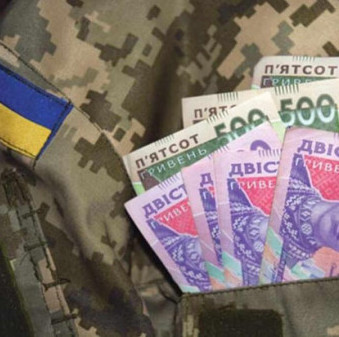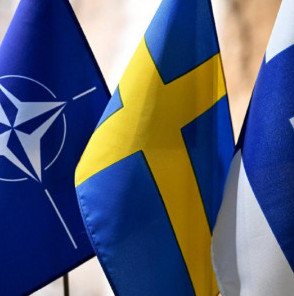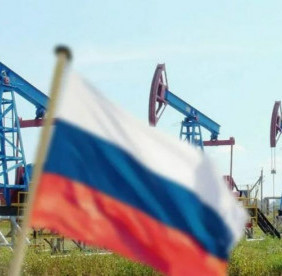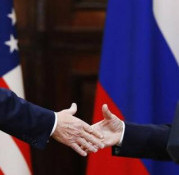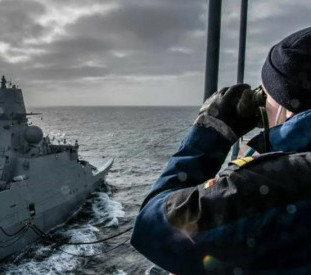In the USA the official purpose of the visit has been stated as "the strengthening of the contacts" with the Chinese Ministry of Defense and "the coordination of the positions" on the problems of Taiwan and the nuclear program of North Korea. Incidentally, observers noted that Rumsfeld's visit to Peking took place soon after a large-scale Russian-Chinese military maneuvers. Besides, it coincided with an aggravation of the Chinese-Japanese relations caused by yet another visit by Japanese premier Koidzumi to the Yasukuni temple – the site, according to the Chinese, of the glorification of war criminals.
On the eve of Rumsfeld's visit to Peking optimists hoped that a successful visit by the US Secretary of Defense would revitalize the relations between the military structures of the two countries, and possibly even become the first step toward the establishment of mutual trust. But more conservative experts pointed out the too great contradictions and differences between the USA and China, which would hardly permit them, in the foreseeable future, to really establish relations of trust.
China and its growing economic and military potential have long been seriously worrying American generals and military experts. Suffice it to remember that up to September 11, 2001, it was precisely China that was nearly openly considered in the Pentagon as the most likely future adversary of the USA in the twenty first century. The level of the military tension between the two countries was significantly evidenced by a number of dangerous incidents involving the Chinese and American military, such as, for instance, the well-known incident four years ago when a Chinese fighter-plane collided in mid-air with an American marine reconnaissance aircraft near the Chinese coast.
After the terrorist attack of September 11, 2001, against the USA the relations between Washington and Peking improved somewhat as China expressed its condolences to the USA and joined the international anti-terrorist coalition. But later on, due to Peking's critical attitude toward the war in Iraq and a number of other circumstances, the American-Chinese relations again entered a phase of mutual distrust.
The US press began to publish statements and articles by high-ranking generals about the allegedly "unjustified" build-up by China of its military power and the growth of the Chinese military threat in the Pacific region, especially in the Taiwan Straits and the zone adjacent to Japan and South Korea. Already in June this year Donald Rumsfeld said that he did not understand why China was spending so much money (over the last two years China's military budget has been annually growing by 17 percent) on modernizing its armaments, if it is not directly threatened by any country in the world. And in July the Pentagon released a special report where it was claimed that China's defense program "jeopardizes the military balance in Asia".
The Chinese military, for their turn, believe that the military bases of the USA and its allies have encircled the PRC on all sides and restrict the growing influence of China as a regional leader. Peking is also showing an extremely negative attitude to the Pentagon building up its intelligence gathering activities along the perimeter of the Chinese borders, including those using the newest strategic pilotless spy-planes.
In this context, it is no wonder that the contacts between the US and Chinese military departments and their cooperation were of late extremely limited. However, for some time now the Bush administration has been trying to find a better understanding with Peking and to channel the military relations between the two countries onto a more constructive course. It can be partly explained by the USA being very keen on China's support in solving the crisis around the North Korean nuclear program. Besides, Washington is evidently alarmed by the looming possibility of a new military-political bloc comprising the PRC, Russia and India being formed.
Thus Donald Rumsfeld's visit to China appears to be an attempt "to mend fences" with the PRC and convince its leaders of the advisability of developing multilateral cooperation with Washington and of greater openness to contacts with the West. The Chinese leadership, for its part, realizing that in the foreseeable future China would not be able to vie on equal terms with the world's only superpower, is also interested, to a certain extent, in normalizing the relations with the USA.
In this connection, observers point out the unprecedented visit by the US Secretary of Defense to the Chinese Strategic Missile Forces HQ, which has been interpreted as a goodwill gesture on the Chinese part. Howecer, Rumsfeld was denied access to the central command post of the Missile Forces in the environs of Peking.
On the whole, as most experts believe, due to the inherent nature of the contradictions between the USA and the PRC, no cardinal change can be expected in their relations, and in the future much more serious clashes of Washington's and Peking's interests on a global plane cannot be ruled out.
